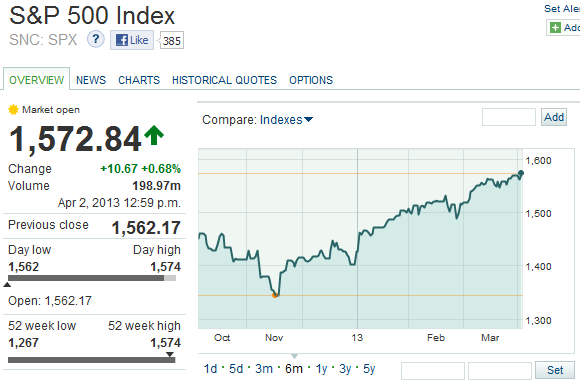
A quick note on an aspect of the recent stock market melt up that's gotten some, though maybe not enough, attention. As I and some others stress here, the recent rise in stock prices is largely a function of historically high corporate earnings (derived in part by squeezing workers and their wages) and very low interest rates, courtesy of the Federal Reserve (and, not to be a sourpuss, but for the record, the recent market highs are not all-time records once you adjust for inflation).
It's that latter part -- the role of the Fed -- that's tricky. There's a lot of anxiety among investors as to the hit stocks might take once the Fed begins to tighten. If Bernanke and Co. were crazy enough to surprise everyone by suddenly raising rates or pulling back on quantitative easing, equity markets would tank bigtime. But they -- the Fed -- won't do that. They'll instead be very careful and transparent and appropriately plodding about unwinding precisely to avoid that melt down. "No surprises" has to be their watchword these days.
What's more worrisome, then, is that better-than-expected economic reports could lead investors to expect the Fed to move sooner and that shift in expectations could trigger a selloff. So I'd watch very carefully for upside surprises, or more precisely, market over-reactions to upside surprises.

Source: Marketwatch
This post originally appeared at Jared Bernstein's On The Economy blog.
